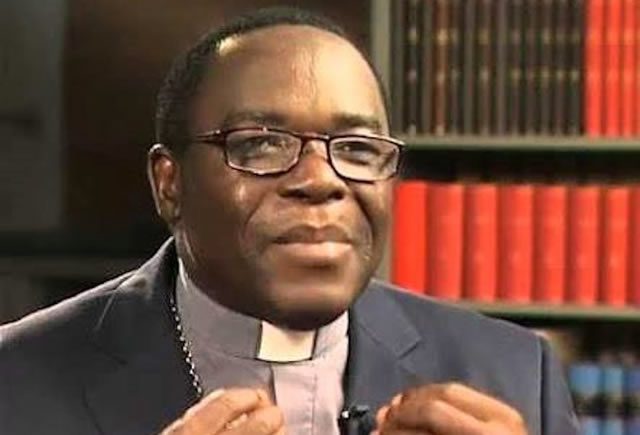The Roman Catholic Diocese of Sokoto's Bishop, Matthew Kukah, has emphasized the troubling pattern of decreasing diversity and merit-based recruitment in Nigerian universities, which are increasingly influenced by ethnic and religious ties.
Kukah shared this information on The Morning Show on Arise TV on Thursday, which was then monitored by our correspondent.
He expressed disappointment over the exclusion of churches in universities in Northern Nigeria.
The Bishop mentioned, “The University of Nigeria, Nsukka, built a mosque. I gave a convocation lecture in Calabar three weeks ago. After my speech, the University's Chief Imam came to congratulate me. But currently, universities like Usman Dan Fodio, Bayero University, and others in Northern Nigeria have decided against allowing churches to be built in universities nationwide, despite being over 40 years old.
“All this extremism we are witnessing is manifested in public life. If students in the university or during their developmental years are not allowed to interact, and if churches or mosques cannot be built nationwide, then there is an issue.”
He highlighted the worrying trend of diminishing diversity and meritocracy in Nigerian universities, where ethnic and religious factors were becoming more important.
The Bishop said, “There was a time when Ahmadu Bello University had lecturers from different parts of the world. Now, observe what has happened to our universities across Nigeria. Our universities have become mere breeding grounds for ethnic bias.
“So, I do not know of any federally funded university where the Vice Chancellor is not locally bred.
“So the universities themselves have become arenas for the aspirations of the local elite. The question is why should a place of worship be a problem for a university? Whether it is for the Muslim students in Calabar or the Christian students in Sokoto.
“I brought this up with the Minister of Education. I have a letter from the Nigerian University Commission. The universities in northern Nigeria have refused to follow this recommendation.”
Kukah emphasized the need to restore integrity and promote diversity in leadership, similar to initiatives led by former President Obasanjo.
Additionally, he called for increased transparency in recruitment processes to prioritize merit over bias.
Kukah advised, “Therefore, let us restore honor in our universities because that is where the leaders of tomorrow will emerge from. Let us also diversify it as former President Olusegun Obasanjo did.
“Our inability to manage diversity has also led us to a literal dead end because when you go to the bureaucracy, you find that in a single office, the people running the show are from the same community, religion, or tribe. If we don’t intentionally figure out how to manage diversity systematically, then we will continue to suffer. I think that this was the most terrible thing that Buhari did, and there needs to be a swift return to a situation in which our diversity is celebrated.
The way people are chosen for public positions in Nigeria should be more clear. It's not right that having certificates doesn't matter anymore and that getting a job depends on who supports you. This issue needs to be dealt with openly.
Kukah emphasized the need to quickly address these issues to create a society that is better for everyone and helps to build the nation.
Creating a nation is a process, but there are many things that need to be fixed. Some things have improved with a lot of effort from all of us, and more can still be done. However, there are many things that we need to try to fix quickly.



